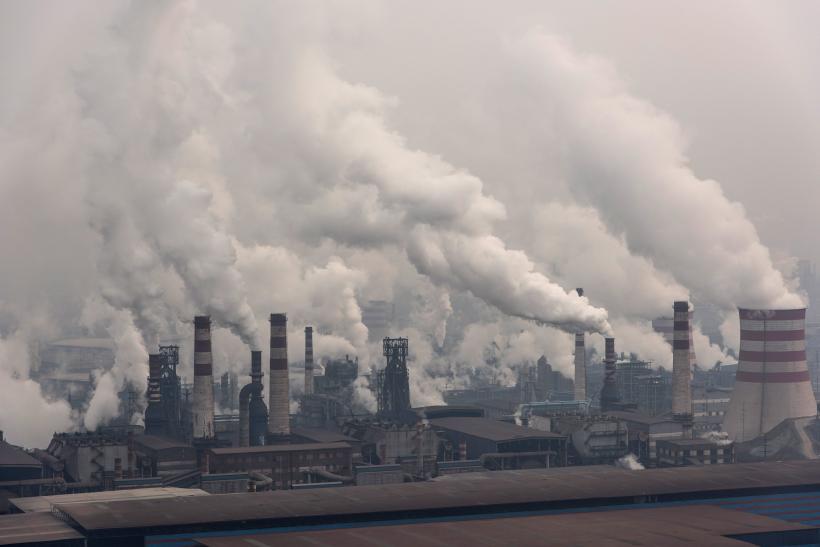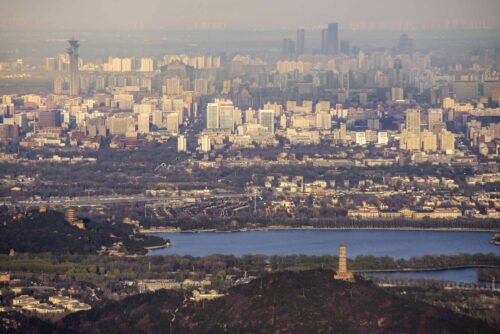China’s carbon emissions unexpectedly accelerate in early 2018

When will Chinese carbon emissions peak?
In the 2015 Paris Agreement, China pledged that its emissions would peak before 2030. International observers are widely confident that the goal is realistic, and a government think tank recently indicated that China may even revise its goal to be more ambitious soon.
But for now, a new analysis from Greenpeace suggests that government spending continues to accelerate emissions growth — potentially setting 2018 up to be China’s most polluting year since 2011. Based on the Chinese government’s own data on coal, oil, and natural gas demand, as well as cement production, Greenpeace researchers concluded that “China’s CO2 emissions went up 4.0% on the first quarter, after a 2% increase in 2017.”
Then, in the “Time to panic?” section of the report, the authors write:
“If China’s emissions are indeed going back to rapid growth, it means that the rest of the world would have to run just to stay in place — keep global emissions from increasing. The task of achieving a rapid and sustained decline in global emissions would become essentially impossible.”
“China is the one that determines in the end whether global emissions will peak soon or not,” Niklas Höhne, a partner at the New Climate Institute, told the Financial Times (paywall).
- In order to make its emissions peak before 2030 and meet Paris Agreement goals, China pledged to make “changes to its industrial structure,” the FT says.
- But “the way they are growing is not by retooling the economy but by going back to the old playbook of just building lots of stuff,” according to Lauri Myllyvirta, an analyst for Greenpeace.
- Clean energy is struggling to offset the increased power demand that is being filled by coal and other fossil fuels, Greenpeace says. Power demand “increased 6.7% in 2017 and 9% in the first four months of 2018,” but even China’s world-leading rate of clean energy installation in 2017 was only “enough to cover power demand growth up to 3% per year.”
- Read more about the implications of this Greenpeace study in a Twitter thread from Lauri Myllyvirta.
One good sign in the news: Beijing is upping the wholesale price (paywall) of natural gas to improve market signals, and admitting that “one-size-fits-all” environmental policies for the country may have been a bit “inefficient.” Perhaps by this coming winter, we will see a less chaotic, and more effective, shift away from coal than last year.
Correction: This article has been updated with the latest information on China’s progress towards its Paris Agreement goals. The Greenpeace study did not reference the Paris Agreement, and China is still widely considered to be on track to reach goal for emissions to peak before 2030.






